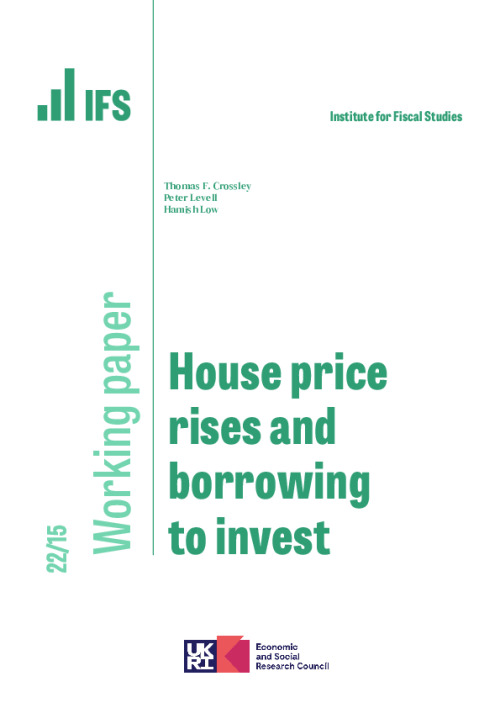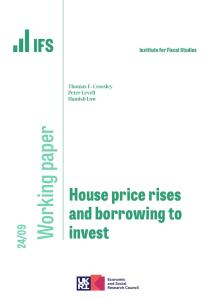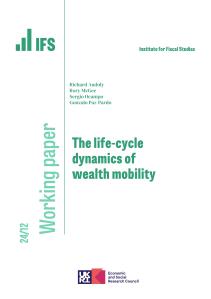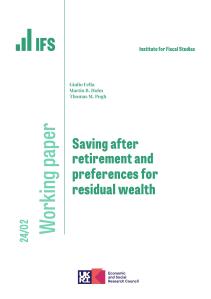Downloads

WP202215-House-price-rises-and-borrowing-to-invest.pdf
PDF | 659.79 KB
Household borrowing and spending rise with house prices, particularly for leveraged households, but household spending is not consumption. We propose an alternative borrow-to-invest motive by which house price gains affect household spending on residential investment: rational, leveraged households have an incentive to make additional residential investments when house prices rise. We test this motive by comparing responses in different categories of spending across more and less leveraged households. We find strong evidence of the borrow-to-invest motive in UK data. Credit constraints matter through reducing access to leveraged returns and so reducing lifetime resources, rather than through consumption smoothing.
Authors

Research Fellow University of Oxford
Hamish is the James Meade Professor of Economics at the University of Oxford, a Professorial Fellow of Nuffield College and a Research Fellow at IFS.

Research Fellow University of Michigan
Tom is a Research Fellow at IFS, a Research Professor for the Institute for Social Research at the University of Michigan.

Associate Director
Peter joined in 2009. He has published several papers on the microeconomics of household spending and labour supply decisions over the life-cycle.
Working Paper details
- DOI
- 10.1920/wp.ifs.2022.1522
- Publisher
- Institute for Fiscal Studies
Suggested citation
T, Crossley and P, Levell and H, Low. (2022). House price rises and borrowing to invest. London: Institute for Fiscal Studies. Available at: https://ifs.org.uk/publications/house-price-rises-and-borrowing-invest-0 (accessed: 2 May 2024).
More from IFS
Understand this issue

Raising revenue from closing inheritance tax loopholes
18 April 2024

Spring Budget 2024: What you need to know
7 March 2024

Why inheritance tax should be reformed
18 January 2024
Policy analysis

Social mobility and wealth

Taxing rented and owner-occupied housing
23 January 2024

Reforming the taxation of non-doms: policy options and uncertainties
4 March 2024
Academic research

House price rises and borrowing to invest
27 March 2024

The life-cycle dynamics of wealth mobility
10 April 2024

Saving after retirement and preferences for residual wealth
18 January 2024